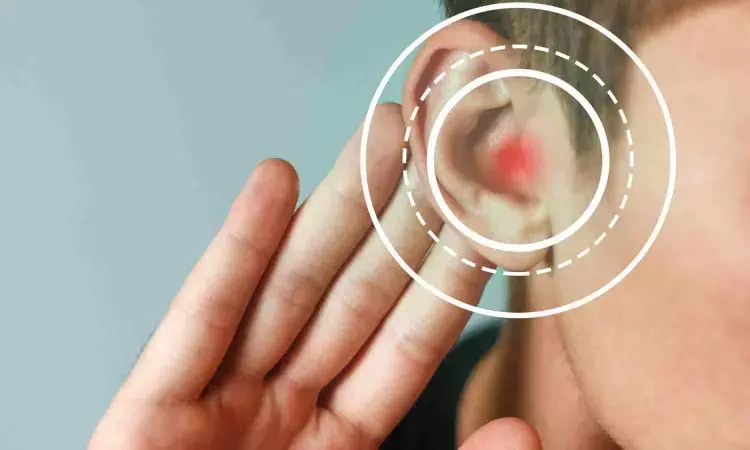- Home
- Medical news & Guidelines
- Anesthesiology
- Cardiology and CTVS
- Critical Care
- Dentistry
- Dermatology
- Diabetes and Endocrinology
- ENT
- Gastroenterology
- Medicine
- Nephrology
- Neurology
- Obstretics-Gynaecology
- Oncology
- Ophthalmology
- Orthopaedics
- Pediatrics-Neonatology
- Psychiatry
- Pulmonology
- Radiology
- Surgery
- Urology
- Laboratory Medicine
- Diet
- Nursing
- Paramedical
- Physiotherapy
- Health news
- Fact Check
- Bone Health Fact Check
- Brain Health Fact Check
- Cancer Related Fact Check
- Child Care Fact Check
- Dental and oral health fact check
- Diabetes and metabolic health fact check
- Diet and Nutrition Fact Check
- Eye and ENT Care Fact Check
- Fitness fact check
- Gut health fact check
- Heart health fact check
- Kidney health fact check
- Medical education fact check
- Men's health fact check
- Respiratory fact check
- Skin and hair care fact check
- Vaccine and Immunization fact check
- Women's health fact check
- AYUSH
- State News
- Andaman and Nicobar Islands
- Andhra Pradesh
- Arunachal Pradesh
- Assam
- Bihar
- Chandigarh
- Chattisgarh
- Dadra and Nagar Haveli
- Daman and Diu
- Delhi
- Goa
- Gujarat
- Haryana
- Himachal Pradesh
- Jammu & Kashmir
- Jharkhand
- Karnataka
- Kerala
- Ladakh
- Lakshadweep
- Madhya Pradesh
- Maharashtra
- Manipur
- Meghalaya
- Mizoram
- Nagaland
- Odisha
- Puducherry
- Punjab
- Rajasthan
- Sikkim
- Tamil Nadu
- Telangana
- Tripura
- Uttar Pradesh
- Uttrakhand
- West Bengal
- Medical Education
- Industry
Hearing Loss Linked to Faster Brain Atrophy and Cognitive Decline in Older Adults: Study

Recent research has suggested a potential link between hearing loss and an increased risk of dementia. However, the underlying mechanisms and how they relate to neurodegeneration and cognitive decline remain unclear. A new study sheds light on these relationships and their impact on dementia risk. The study was published in the Journal Of Neurology Neurosurgery and Psychiatry. The study was conducted by Thomas D. and colleagues.
Hearing loss has been proposed as a modifiable risk factor for dementia, but the specific pathways involved are not well understood. This study aimed to investigate how hearing impairment relates to brain atrophy and cognitive decline, and whether pathological processes such as Alzheimer's disease and cerebrovascular disease influence these relationships.
The study analyzed data from 287 adults born in the same week of 1946 who underwent baseline pure tone audiometry at an average age of 70.6 years. Participants also underwent two time point cognitive assessment and multimodal brain imaging with a mean interval of 2.4 years. Hearing impairment was defined as a pure tone average of greater than 25 decibels in the best hearing ear. Rates of change for whole brain, hippocampal, and ventricle volume were estimated from structural MRI. Cognitive function was assessed using the Pre-clinical Alzheimer’s Cognitive Composite. Regression models were used to evaluate the associations between baseline hearing impairment, brain atrophy, and cognitive decline, adjusting for confounding factors including β-amyloid deposition and white matter hyperintensity volume.
The key findings of the study were as follows:
• Out of the 287 participants, 111 had hearing impairment.
• Hearing impaired individuals had faster rates of whole brain atrophy compared to those with preserved hearing.
• Worse hearing (higher pure tone average) predicted faster rates of hippocampal atrophy.
• In participants with hearing impairment, faster rates of whole brain atrophy were associated with greater cognitive decline.
• These relationships were independent of β-amyloid deposition and white matter hyperintensity volume, suggesting that hearing loss may influence dementia risk via distinct pathways.
The study suggests that hearing loss may contribute to dementia risk through pathways separate from those typically associated with Alzheimer's and cerebrovascular disease. Understanding these pathways could lead to new strategies for dementia prevention and intervention in older adults with hearing impairment.
Reference:
Parker, T. D., Hardy, C., Keuss, S., Coath, W., Cash, D. M., Lu, K., Nicholas, J. M., James, S.-N., Sudre, C., Crutch, S., Bamiou, D.-E., Warren, J. D., Fox, N. C., Richards, M., & Schott, J. M. (2024). Peripheral hearing loss at age 70 predicts brain atrophy and associated cognitive change. Journal of Neurology, Neurosurgery, and Psychiatry, jnnp-2023-333101. https://doi.org/10.1136/jnnp-2023-333101
Dr Riya Dave has completed dentistry from Gujarat University in 2022. She is a dentist and accomplished medical and scientific writer known for her commitment to bridging the gap between clinical expertise and accessible healthcare information. She has been actively involved in writing blogs related to health and wellness.
Dr Kamal Kant Kohli-MBBS, DTCD- a chest specialist with more than 30 years of practice and a flair for writing clinical articles, Dr Kamal Kant Kohli joined Medical Dialogues as a Chief Editor of Medical News. Besides writing articles, as an editor, he proofreads and verifies all the medical content published on Medical Dialogues including those coming from journals, studies,medical conferences,guidelines etc. Email: drkohli@medicaldialogues.in. Contact no. 011-43720751


